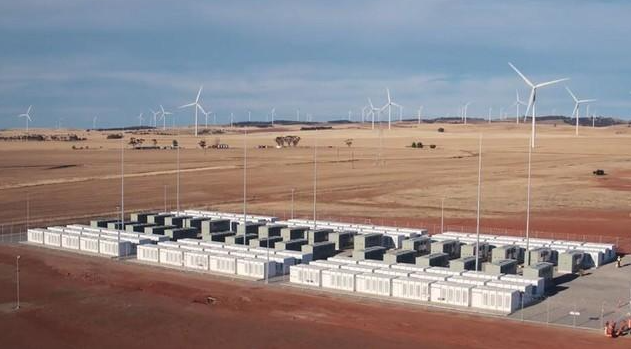Advantages of Battery Energy Storage Systems
Battery Energy Storage Systems (BESS) offer several advantages in the field of energy storage and management. Here are some key advantages of Battery Energy Storage Systems:

Energy Time-Shifting: Battery storage allows for the time-shifting of energy. Excess energy generated during periods of low demand can be stored in batteries and used during times of high demand, effectively balancing supply and demand. This helps optimize the utilization of renewable energy sources, such as solar and wind, which are intermittent in nature.
Peak Shaving and Load Management: Battery storage systems can help reduce peak demand by discharging stored energy during periods of high demand. By shaving off the peak demand, battery systems can help avoid grid strain and reduce the need for expensive peaker plants. Additionally, batteries can be used for load management by supplying extra power during times of increased demand or grid instability.
Grid Stability and Resiliency: Battery storage systems can enhance grid stability and resiliency by providing fast-responding, reliable power. They can respond rapidly to fluctuations in supply and demand, helping to regulate frequency and voltage levels and providing ancillary services such as frequency regulation and reactive power support. This improves the overall reliability and quality of the electricity grid.
Integration of Renewable Energy: One of the significant advantages of battery storage is its ability to integrate renewable energy sources into the grid effectively. As mentioned earlier, batteries can store excess energy generated by renewables, ensuring a consistent and reliable power supply when renewable sources are not actively generating electricity. This reduces the reliance on fossil fuel-based backup power plants and promotes the use of clean energy.
Grid Congestion Management: In areas with limited transmission capacity, battery storage systems can help alleviate grid congestion. By storing excess energy during times of low demand and injecting it back into the grid during periods of high demand, batteries can reduce the strain on transmission infrastructure, avoiding the need for costly upgrades.
Microgrid Support: Battery storage systems are particularly valuable in microgrid applications. They can provide backup power during outages or when the main grid is unavailable, ensuring a reliable power supply for critical facilities like hospitals, data centers, or remote communities. Battery storage can also be paired with renewable energy sources in microgrids, creating self-sustaining energy systems.
Reduced Energy Costs: Battery storage can help reduce energy costs in various ways. It allows consumers to store excess electricity from the grid during off-peak hours when electricity prices are low and use it during peak hours when prices are higher. This can result in significant cost savings by avoiding expensive peak-time tariffs. Additionally, batteries can provide ancillary services to the grid, earning revenue for their owners.
Environmental Benefits: Battery storage systems contribute to a more sustainable and cleaner energy system. By enabling the integration of renewable energy sources and reducing reliance on fossil fuel-based backup power plants, batteries help reduce greenhouse gas emissions and air pollution. This promotes the transition to a low-carbon energy future and helps combat climate change.
Overall, Battery Energy Storage Systems offer numerous advantages, ranging from enhanced grid stability and increased renewable energy penetration to cost savings and environmental benefits. As the technology advances and costs continue to decline, the adoption of battery storage is expected to increase, driving the transformation of the energy sector.
Next:Supply the world's largest single-phase energy storage plant! BYD Energy Storage Continues to Lead the Global Energy Transition
Previous:ENERGY STORAGE SYSTEM
